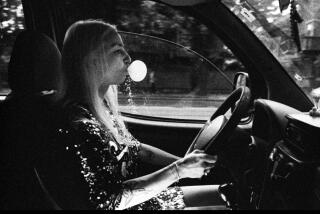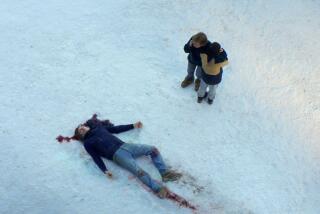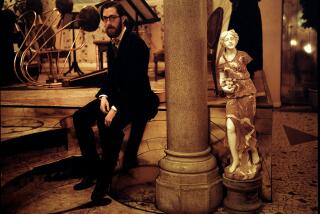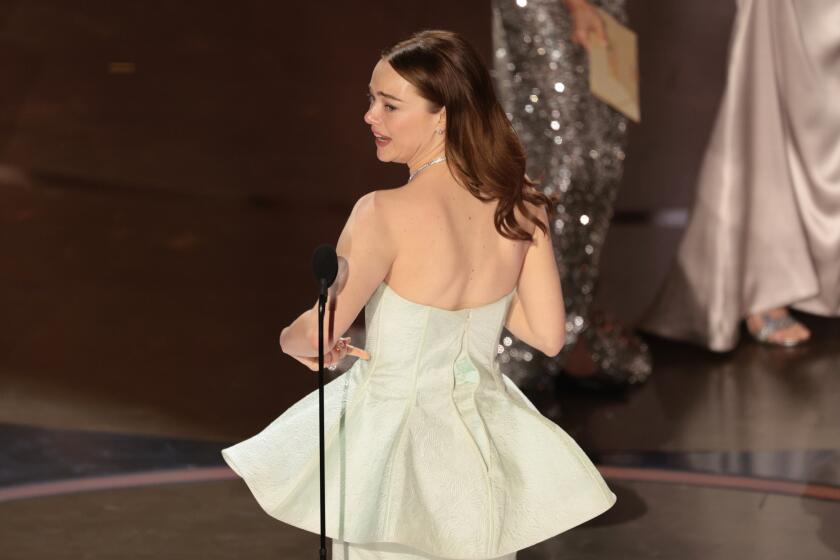How Nicholas Britell mixes reverence with absurdity in the ‘Don’t Look Up’ score
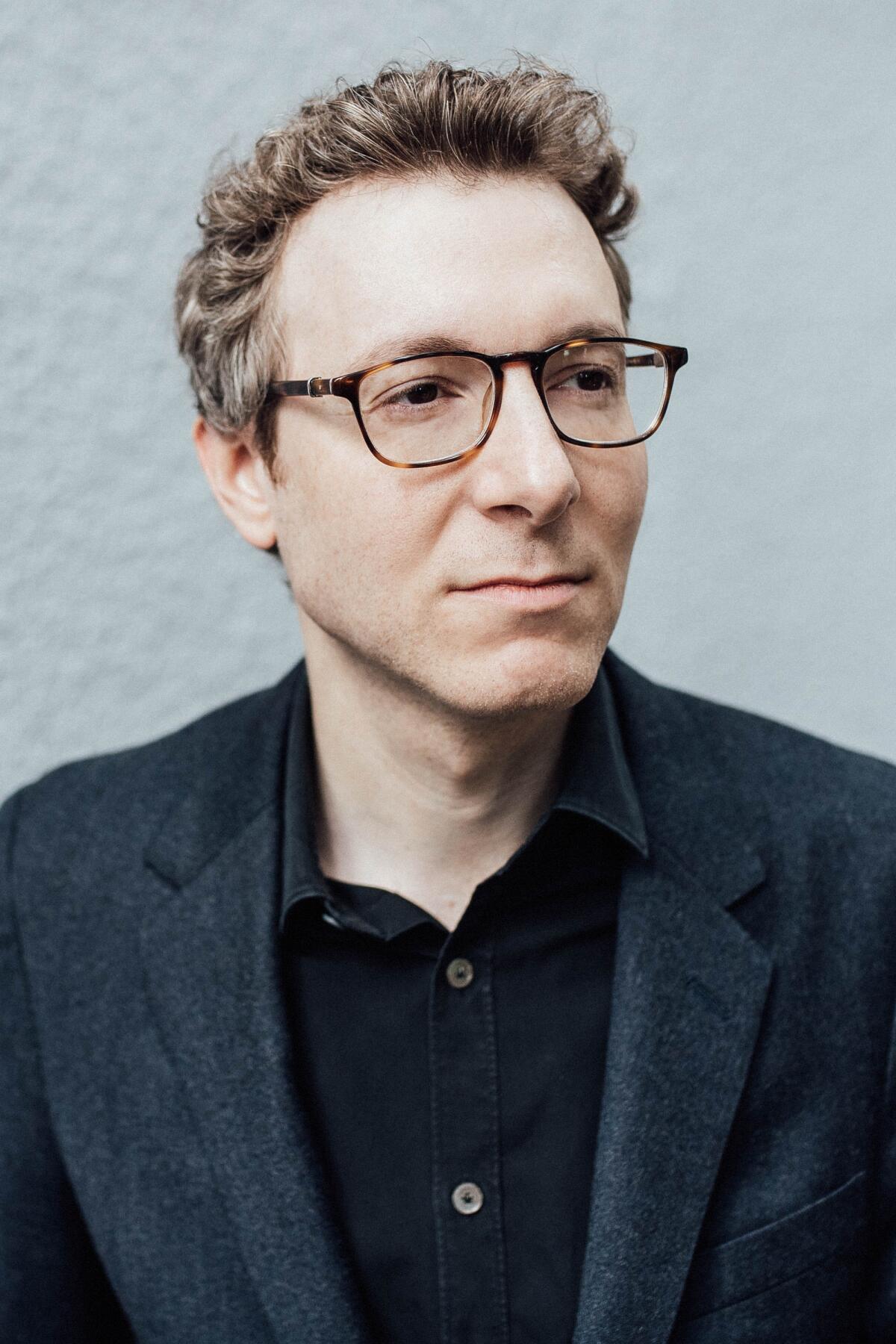
The end of the world, at least for Adam McKay, is both farcical and poignant. “Don’t Look Up,” McKay’s hit Netflix movie about a comet heading for a planet seemingly full of movie stars, careens in tone between dumbstruck gallows humor and earnest melancholy.
Up for the task was his chosen composer, Nicholas Britell, who regularly finds poetry in the absurd on “Succession” and brought sublime sadness to the Oscar-nominated scores for “Moonlight” and “If Beale Street Could Talk.” Still, Britell said this was the most challenging score of his career, owing to the film’s tricky tone.
On one extreme pole, he needed to write something “to represent that feeling of reverence for knowledge, for science, for rationality, for the higher aspirations of humankind.” On the other, the feeling of “hurtling down the roller coaster of absurdity.”
The first thing he wrote was a piece called “Overture to Logic and Knowledge,” which McKay played on set for his actors. Built on top of a chord cycle that’s both cosmic and introspective, featuring the delicately logical tones of a celesta, Britell conceived the piece as feeling “almost like looking at Earth from above. There’s a sense of remove.”
But when McKay laid that piece under the final scene of main characters Randall Mindy (Leo DiCaprio), Kate Dibiasky (Jennifer Lawrence) and company at their last supper before the comet strikes — the “Overture” sounds more like a requiem for humanity.
“Juxtaposed with that moment, I find it heartbreaking,” said Britell. “I think that’s one of the beauties of film music, and film in general — it’s these juxtapositions.”
Britell’s score hints at the gravity to come with the film’s very first notes resounding on celesta, as Dibiasky makes her discovery of the comet, but the actual notes here are his main theme for the score’s wacky other “pole” — an idea he ended up assigning to a big band, with a twist.
At one point, McKay and Britell were contemplating what it would feel like if humans actually responded to an extinction event as ridiculously as the characters in the film. Britell observed that “it feels like we’re in World War II — but we’re going to lose.”
That was his inspiration for using a brassy WWII-era ensemble, but throwing into it everything from banjos and mandolins to bass saxophone — a big band for the Big Bang.
“There’s a brashness to the frequency of this film,” he said, “and the music had to convey or resonate with that.”
Mindy and Dibiasky race through the movie, panicking and pleading with inept politicians and media and an imbecilic populace, all while accompanied by this unhinged band. Trumpets blare at the voice-cracking top of their register over a cool upright bass line and the incongruous junkyard jangle of toy piano. McKay, a comedian turned doomsday prophet, often uses music for humor — suddenly cutting away in the middle of a phrase just like he does with lines of dialogue.
“There’s something about that sense of absurdity and shock,” said Britell. “Those cuts do that to you, where you’re over here and then you’re over here. Sometimes I’ll write a piece and I’ll say, ‘You guys just chop it wherever you need.’”
He also wrote custom tunes for the various commercials, hold music and ringtones within the film, and theme music for “The Daily Rip” talk show. That wasn’t just goofing off, even though it was fun.
“You do feel it subconsciously,” he said. “One of the greatest values I think score can provide to a film is that sense of cohesion, if everything is linked. In this case, the link was actually a story point, which was the fact that BASH Communications’ tentacles were everywhere ... You’re feeling this sort of psychotic jingle all the time.”
For the most part, the score in “Don’t Look Up” is serious, or at least “always trying to imply how serious this is,” Britell said — with one or two exceptions.
When BASH mogul Peter Isherwell (Mark Rylance) presents his pitch to the president (Meryl Streep) of breaking the comet into smaller comets and mining them for profit, Britell’s music swells and soars with “a level of serious that is so grandiloquent” that it’s obviously in on the joke.
Britell called his old friend, Tim Fain — who provided the elegant solos on “Moonlight” — and said: “I have a really, really virtuosic, cadenza-like violin solo I want you to do. There’s a male choir, women’s choir, full orchestra, brass, and then you have this huge descant violin line on top.”
“That one’s completely over the top,” Britell laughed.
Additionally, Britell co-wrote two original songs: the activist pop anthem “Just Look Up,” sung by Ariana Grande and Kid Cudi, and the end credits song “Second Nature” with Bon Iver.
At the end of the roller coaster, the final feeling goes to that sober overture to logic, resounding as the bell tolls for planet Earth. As it does, Dibiasky and her friends sit around a dinner table talking about store-bought apple pie versus homemade.
“It’s an interesting tone that Adam crafted at the end there, because it’s not just sad,” Britell noted. “It’s sad and also, like, astonished. That’s really the word that I thought of a lot when we were working on the film — there’s a feeling of ever-increasing astonishment at how crazy things are.”
More to Read
From the Oscars to the Emmys.
Get the Envelope newsletter for exclusive awards season coverage, behind-the-scenes stories from the Envelope podcast and columnist Glenn Whipp’s must-read analysis.
You may occasionally receive promotional content from the Los Angeles Times.
